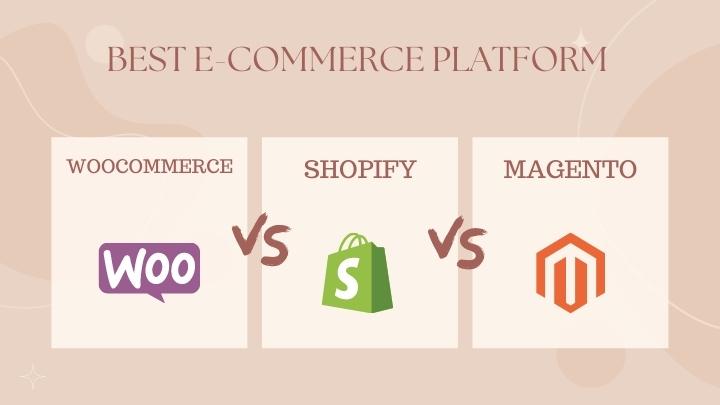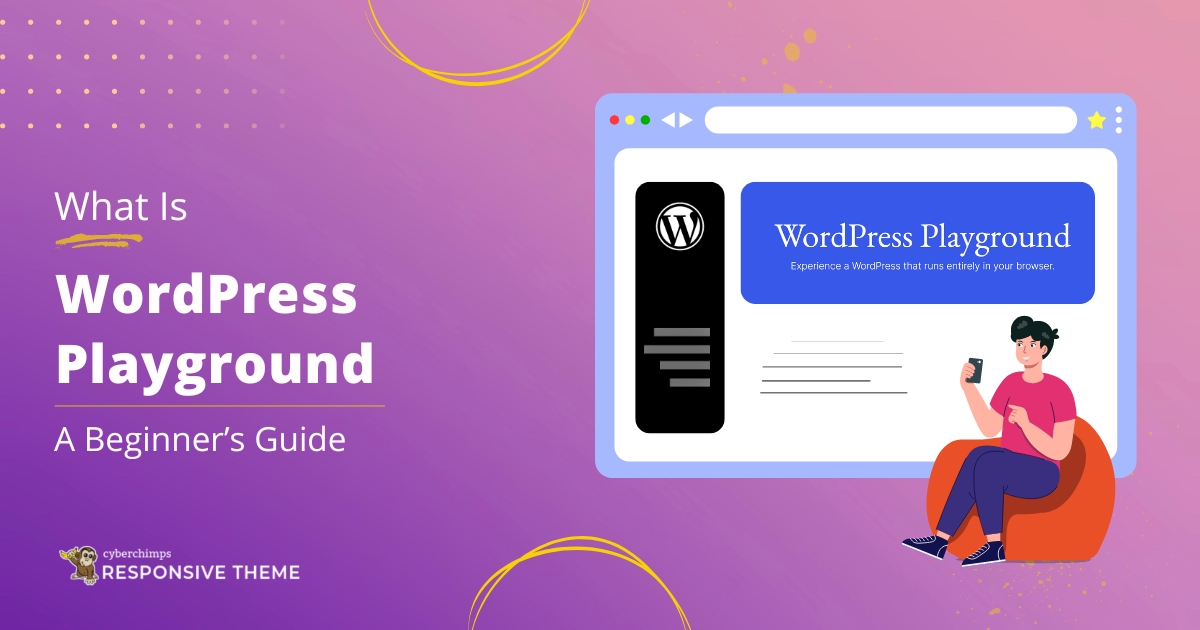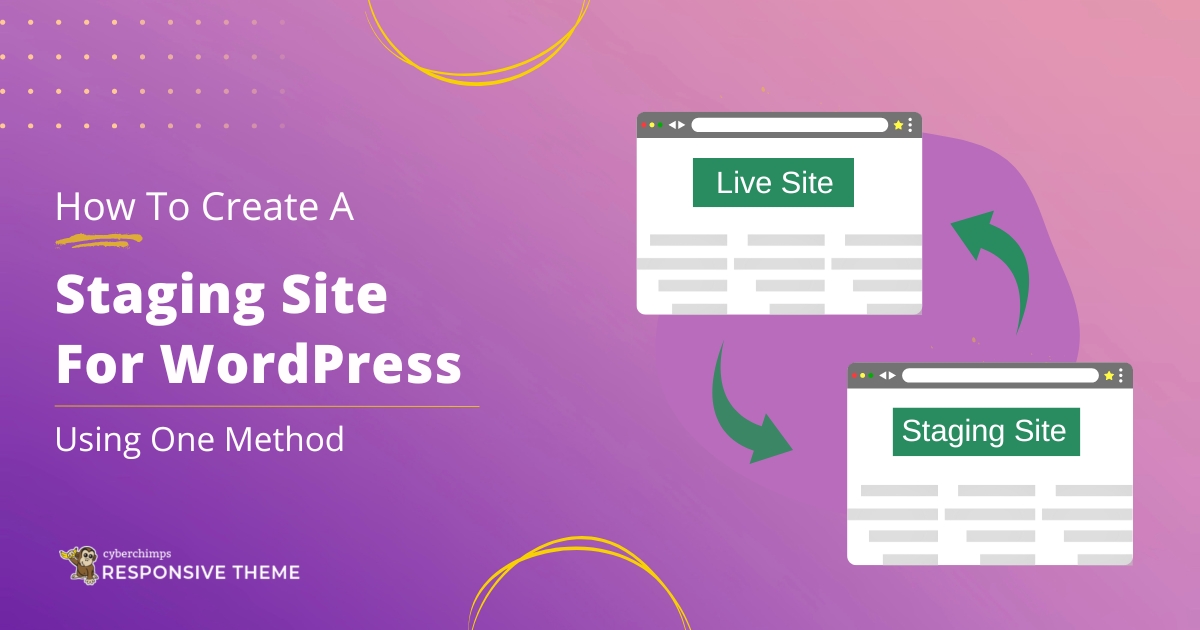While the idea of selling products online seems enthralling enough, when it comes to deciding on an appropriate eCommerce platform, the struggle is definitely a real one. On top of that, if you’re a newbie and not ready to spend an extensive budget, things become even more difficult for you.
In reality, a chunk of e-Commerce sites on the internet is powered by Shopify, WooCommerce, and Magento. However, a fiery question that still remains unanswered is: which is the best e-Commerce platform to choose? The only way to find an unbiased answer is to navigate through a comprehensive comparison between WooCommerce vs Shopify vs Magento.
Through this post, we’ll be helping you to explore your options. So, without further ado, let’s assess all of these platforms and study every major critical factor.
What is WooCommerce?
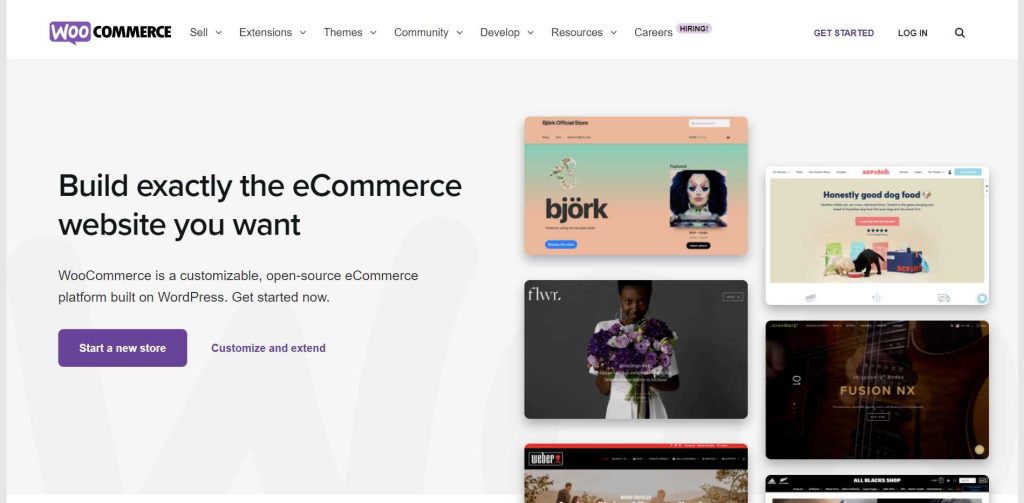
WooCommerce is one free, open-source plugin that allows you to convert your WordPress site into an eCommerce store. It was released back in 2011 and, since then, has become a popular platform, especially among small and medium-sized companies.
WooCommerce is being used by almost 8.7% of all sites and covers 23.43% of the global market share. The plugin supports 67 languages and has more than 5 million active installations.
It supports an array of themes that can help design your WooCommerce store more attractively, such as WooCommerce Starter Templates by CyberChimps and many more.
Key Features of WooCommerce
Let’s dive deeper and find out more about this platform through the below-mentioned features:
- Seamless WordPress Integration
One of the significant USPs of WooCommerce is that it is developed on WordPress. Thus, principles that are effective for WordPress work the same way for WooCommerce as well. And, since it’s quite effortless to use WordPress, working around with WooCommerce isn’t strenuous at all.
- Open-Source Development Platform
WooCommerce is a completely open-source platform that is managed on GitHub. This simply means that everybody who wishes to view, contribute and modify the code can do that.
- Extraordinary Flexibility
WooCommerce is available as one of the great options for merchants that can be easily customized to sell every type of product, be it physical or virtual. Furthermore, you don’t have to geek around to customize the platform.
- Inbuilt Payment Processing
One of the considerable facts about WooCommerce is its easy setup of payments. This is because of its inbuilt payment gateways that let you process transactions through varying options, such as:
- Cash on delivery
- Checks
- Bank transfers
- Credit cards
- PayPal
- Stripe
All you would need to do is complete a few clicks, and it’s done.
- A Huge Library of Extensions
When developing an eCommerce store, it’s obvious that your platform should be equipped enough to support varying products. Right from payments, marketing, shipping, accounting – there’s a whole bunch to be managed. Hence, WooCommerce is available with varying extensions, almost more than 400 in number, that make all of the functions easier.
Pros of WooCommerce
- Advanced features available for large-scale online businesses
- Varying flexible customization options
- Store administrator and customer accounts supported
- Plenty of paid and free WooCommerce themes
Cons of WooCommerce
- The add-ons could be expensive for startups and small businesses
- You may need some coding knowledge sometimes
- No support for everything associated with maintenance, like site security and web hosting
What is Shopify?

Shopify was launched back in 2004. Within two years, it was regarded as one of the most flourishing startups in 2006. With this platform, you can now set up a functioning eCommerce store within 15 minutes. This one is a subscription-based platform that begins at $29/month at its basic level.
Currently, more than 1.7 million sellers are using this platform. In the first quarter of 2021, the revenue accumulated by Shopify was $988.6 million. This platform covers almost 20% of the global market share.
By using Shopify, you can ensure relishing a gamut of advantages and features, such as two accounts for admins, 24/7 support, discount codes, unlimited file storage, limitless creation of merchandise and more.
Key Features of Shopify
Jotted down below are some of the key features of Shopify that will help you comprehend this platform better:
- Shopify Point of Sale
Shopify provides Point of Sale (POS), which is a feature that lets companies sell their products in the real world. For instance, a company can open physical pop-up stores to sell products offline and accept payments through a card reader. These payments get directly linked to the Shopify inventory of the company that maintains a record of every transaction. This way, you don’t have to maintain a separate record of sales for offline and online transactions.
- Varying SEO Tools
Shopify is available with a variety of Search Engine Optimization (SEO) tools that you can leverage to accomplish desired objectives. You also get support for varying third-party application integrations to effectively optimize the site through this platform.
- Shopify Dropshipping
Shopify provides multiple applications that help you connect to an array of wholesale suppliers in the world. Shopify completely eradicates the need to maintain an active warehouse to store products through this model.
- Shopify Analytics
Furthermore, this platform provides plenty of analytics tools that you can use to evaluate the performance of your store. With Shopify Analytics, you can generate effective insights related to sales, marketing, customer activities and other parts of your business.
- Abandoned Cart Reminders
Accordingly, 68% of customers are likely to abandon shopping carts before converting and buying anything. If this often happens on your site, it can massively drop your sales figures. Thus, to help you out, Shopify has an abandoned carts checkout emails feature that lets you identify customers who have products in their carts and send them reminder emails to complete the purchase.
Pros of Shopify
- Integrations with WordPress blogs and social media platforms
- 24/7 support
- Easy setup
- App store featuring several apps
- Easy purchase of a custom domain name
Cons of Shopify
- The non-optimal URL structure for SEO
- A transaction fee is needed whenever a sale is made
What is Magento or Adobe Commerce?
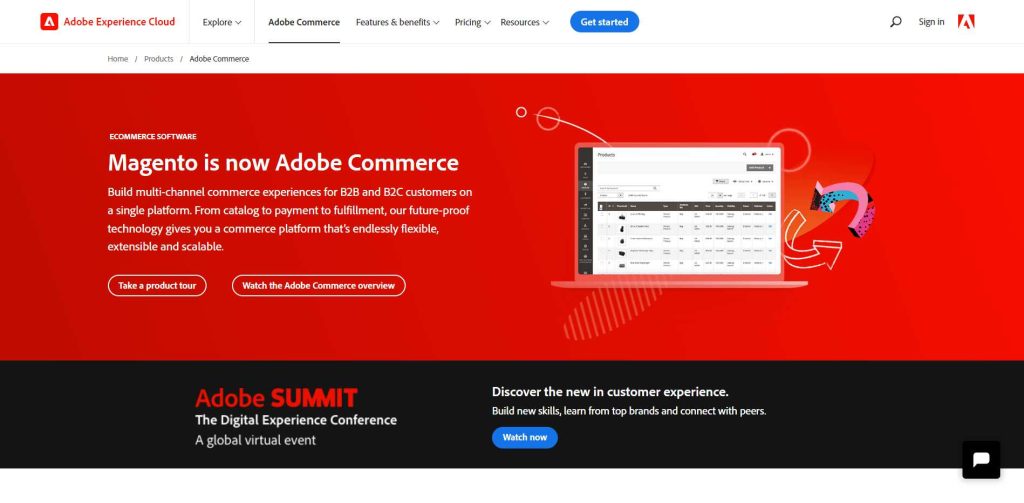
Launched in March 2008, Magento CMS was bought over by Adobe in 2018. Today, there are more than 700,000 sites across the globe operating on this platform. It provides many inbuilt functions. You can change currencies and languages, add coupons, apply discounts for chosen products, create detailed reports, and more.
The platform also allows your customers to leave reviews and ratings for the purchased items. Moreover, Magento Open Source offers an extensive range of templates and extensions. If you want, you can also alter the PHP or HTML code to showcase special features on the site.
In addition to this, Magento also allows you to create several online stores and manage them with one single admin panel. If several people manage the store, you can assign them roles accordingly.
Key Features of Magento
To find out whether this platform will be useful for you or not, here are some key features to consider:
- Analytics and Reporting
Considering that one of the most crucial aspects of an eCommerce site is the precise analytics and reporting, Magento offers you just that. This platform supports Google Analytics that helps you create various reports, such as:
- Sales report
- Abandoned shopping cart report
- Tax report
- Best purchased products report
- Best viewed products report
- Coupon usage report
- Search terms report
- Product reviews report
- Total sales invoiced report
And many more.
- Improved Functionalities
Magento provides such functionalities that assist you in providing an improved shopping experience to your customers. The list includes showing pricing tiers, product wish list addition, displaying stock availability, multiple images per product, zooming in and out on images, and more.
- Catalog Management
This platform is equipped with adequate features that help you manage the catalogue to a great extent. Magento supports limitless product attributes, displaying virtual products, complete inventory management, deletion and editing of product reviews, dynamic pricing, fast product creation, social sharing of products, etc.
- Customer Accounts
Magento offers you an easy-to-handle user account with a gamut of functionalities. The competencies of a customer account comprise comprehensive order history & status, dashboard, one or multiple shipping addresses, billing options, newsletter subscription, viewing recently ordered products and much more.
- Marketing and Promotional Tools
With Magento, you get a wide range of marketing and promotional tools. Using them comprehensively can make marketing and advertising much easier. The tool provides various services as well, such as promotional pricing, up-selling & cross-selling products, coupon code sharing reports, new product promotion, monitoring coupon use, free shipping, and more.
Pros of Magento
- Several inbuilt features
- A variety of stunning themes
- A large developer and user community
- No coding required
- Varying extensions on Magento Connect
Cons of Magento
- Costs involved in setting up the shop
- Time-consuming and complicated setup
- Support is only for the Magento Commerce solution
- Requires dedicated server
Pricing

To understand which platform can fit into your budget, let’s have a look at their pricing:
| Pricing | Shopify | WooCommerce | Magento |
| Platform | $81.50 – $2,000 / per annum | The WooCommerce plugin is free | Approximately $22,000 – $50,000 / per annum |
| Hosting Charges | Domain and hosting are inclusive of the plan | Approximately $12 / per annum for domain and $5 – $25 for hosting | $100 – $1,000 / month depending upon the requirement |
| Theme Charges | No extra charges for themes or plugins | $25 – $150 | $30 – $500 |
| Developing Cost | Nil | Mid | High |
Ease of Use

When choosing a platform, you must evaluate the ease of use of the platforms. Let’s dive deeper one by one:
- Shopify
With Shopify, you don’t need prior website development or coding knowledge. It offers hosting and software itself, meaning that you’ll only have to set up and design your store. Moreover, a variety of themes and plugins are also available for this task.
- WooCommerce
If you’re fine with running the store on free plugins and themes of WooCommerce, this platform becomes extremely easy for you to use. However, in most situations, you will have to do customizations. And for that, WooCommerce turns a bit tricky, especially if you aren’t familiar with coding.
- Magento
Magento comes with a high learning curve. You cannot maintain your Magento website without taking any help from a developer or hosting services. You must be familiar with HTML, PHP, cloud hosting, and more to run a site on this platform.
Winner: Shopify
Performance

In terms of performance, here’s what every platform got:
- Shopify
Shopify fares quite well with performance and speed. In fact, speed is one of this platform’s primary benefits. However, as far as scalability is concerned, Shopify doesn’t do well compared to Magento and WooCommerce, which could hinder your business’s growth. To get smooth scalability, you’ll need Shopify Plus, which can increase the expenditure dramatically.
- WooCommerce
WooCommerce lets you relish scalability. However, those who don’t have any coding experience will find it difficult to scale the site as per the needs. Thus, growing the business will become problematic.
- Magento
This platform is powerful and capable of accommodating thousands of products with high site traffic. If your business is huge currently or you have massive expansion plans in the coming months, the content management system of Magento will help you to a great extent. Also, it is scalable as well; hence, you can decrease or increase the resources that the server needs to be based on the site’s traffic. This way, your customers will not experience any crashes or slowdowns during sudden traffic surges.

Sounds too technical? Don’t worry. Many services such as HumCommerce help you with Magento performance optimization. Not only performance, but HumCommerce also provide various other Magento solutions. If you decide to choose Magento as your E-Commerce platform, we recommend you checkout HumCommerce Magento Solutions.
Winner: Magento
Extensions & Plugins

Extensions and plugins help you expand the functionalities of your site incredibly well. Here’s what all these platforms have to offer in terms of this factor:
- Shopify
Shopify has hundreds of paid and free extensions and plugins that allow you to achieve your goals with ease. Be it using a tool to lower cart abandonment or something to integrate social buttons; they help you improve the overall functionality.
- WooCommerce
There are thousands of extensions and plugins offered by WooCommerce. Whether you wish to boost the speed of your website, take backup, ensure adequate security, stay updated with SEO, or add anything else, WooCommerce gives you complete freedom to design the site as you like.
- Magento
With Magento, you can rest assured of getting access to almost 6000 free and paid tools and extensions. They allow you to enhance and grow the functionality of your website excessively. You can get one for varying solutions in every domain, including customer service, marketing, site optimization, payments & security, accounting & finance, content & customization, etc.
Winner: WooCommerce and Magento
Security

Let’s evaluate these three platforms on the basis of their security features:
- Shopify
Considering that Shopify hosts everything globally, it is reliable and secure. The platform looks after all of your server-side maintenance requirements and regulates the same. Shopify also offers a free SSL certificate and looks after PCI compliance.
- WooCommerce
WordPress consistently updates its software for security and bug fixing. Thus, you don’t have anything to fret about as the WooCommerce team monitors and changes the code to decrease threats as much as possible. In addition to this, there are varying security plugins that you can use to safeguard the site from virus attacks and hackers.
- Magento
With Magento, security won’t be an issue if you have efficient hosting services and developers at your end. This platform was developed by giving high priority to security. It continues to release security patches, and you can find varying plugins and extensions to get high-security levels.
Winner: Magento
Marketing & SEO
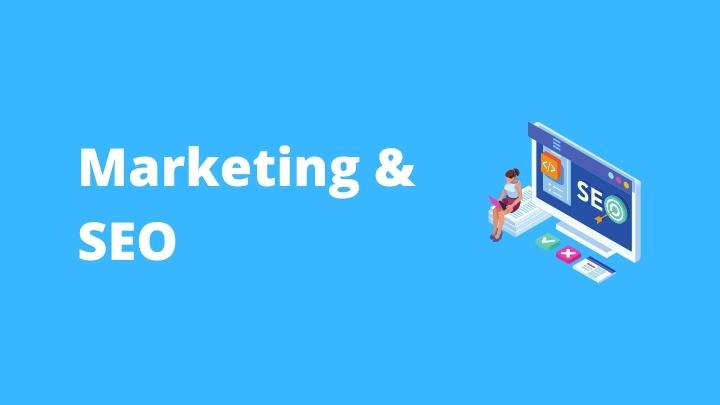
When developing an eCommerce website, considering marketing and SEO is crucial. Let’s find out more with this comparison:
- Shopify
Since it’s an eCommerce first store, Shopify is optimized for SEO. The only issue is that it doesn’t offer a lot of customization options. There could be several SEO and marketing practices for your business; you won’t be able to execute them if Shopify doesn’t let you.
- WooCommerce
Courtesy of the extensions and plugins available in WooCommerce, the platform provides a great degree of marketing and SEO. You can even tweak the settings to match your preferences.
- Magento
Magento offers advanced marketing and SEO features coupled with built-in analytics. It generates SEO-friendly meta descriptions and URLs, automates watermarking and resizing images, integrates Google site maps, etc. Alongside this, you can customize SEO to suit your site’s needs.
Winner: Magento & WooCommerce
Support

Let’s find out the platform you can rely upon to get ultimate support by evaluating them below:
- Shopify
Shopify boasts of 24 x 7 customer support. The response time is good as well. Usually, they’re prompt with solutions and replies. You can reach out to their customer support through phone, email and live chat.
- WooCommerce
Since WooCommerce is a WordPress plugin, the latter’s community is quite huge. You can seamlessly take help from plugins or codes created by others in the same community to improve the functionality of your website.
- Magento
Magento has a significant community of almost 300,000 members. With certified and amateur members alike contributing to communities, it’s not difficult to find help if you’re faced with any problems. However, direct support may not be prompt.
Winner: Shopify
WooCommerce vs Shopify vs Magento: Which one is the best?

Coming towards the end, there you have the entire comparison of WooCommerce vs Shopify vs Magento. But, which one should you choose?
- If you have a small store, you can go with Shopify
- If you wish to empower your small and medium enterprise, you can choose WooCommerce
- If you have a big firm, you can select Magento
In the end, regardless of the platform you’re choosing, ensure that you consider every aspect of each platform to double-check if it matches well with your future goals and business type.

